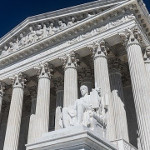Bradley Arant Boult Cummings LLP announced that 17 attorneys have joined the firm as associates across the firm’s offices in Birmingham; Charlotte, N.C.; Dallas; Huntsville, Ala; and Nashville, Tenn.
The firm’s new associates in each Bradley office are as follows:
Birmingham
Cortlin Bond is a member of the Litigation Practice Group. She received her J.D. (cum laude) from the University of Alabama School of Law, where she served as production editor of the Alabama Law Review. She received her Bachelor of Arts (magna cum laude) from the University of Alabama.
Mary Nobles Hancock is a member of the Corporate and Securities Practice Group. She received her J.D. (magna cum laude) from Washington and Lee University School of Law, where she served as executive editor of the Washington and Lee Law Review. During law school, she served as a judicial extern for Judge Elizabeth K. Dillon of the U.S. District Court for the Western District of Virginia. She received her Bachelor of Science from Vanderbilt University.
Kelsie M. Overton is a member of the Litigation Practice Group. She received her J.D. (magna cum laude) from Washington University School of Law, where she served as a senior editor of the Washington University Law Review. She was a Dean’s Fellow and graduated with a certificate in Public Interest Law. While in law school, she was a member of the women’s law caucus and served on the public service advisory board. She received her Bachelor of Arts (magna cum laude) from Birmingham-Southern College.
Corbin C. Potter is a member of the Construction and Litigation practice groups. He received his J.D. (magna cum laude) from the Cumberland School of Law at Samford University, where he served as student materials editor and junior editor for the Cumberland Law Review. He was a Judge Abraham Caruthers Fellow at law school. He received his Bachelor of Science in Business Administration (magna cum laude) from Auburn University.
Connor J. Rose is a member of the Construction Practice Group. He received his J.D. (cum laude) from the University of Georgia School of Law, where he served as articles editor for the Georgia Journal of International and Comparative Law. During law school, he mediated more than 50 cases to agreement as a registered mediator with the state of Georgia. He served as a judicial intern for Judge Karon O. Bowdre of the U.S. District Court for the Northern District of Alabama. He received his Bachelor of Science from Gettysburg College.
Daniel C. Tankersley is a member of the Real Estate Practice Group. He received his J.D. from the University of Mississippi School of Law, where he served as staff editor for the Federal Courts Law Review and associate cases editor for the Mississippi Law Journal. He received his Bachelor of Music (summa cum laude) from Samford University.
Charlotte, N.C.
Samuel M. Dearstyne is a member of the Litigation Practice Group. He received his J.D. from the University of North Carolina School of Law, where he was a Dean’s Fellow and Honors Writing Scholar and served as managing editor of the North Carolina Law Review. He interned for Judge Robert J. Conrad, Jr. of the U.S. District Court for the Western District of North Carolina. He received his Bachelor of Arts (summa cum laude) from North Carolina State University.
Anna-Bryce Flowe is a member of the Construction Practice Group. She received her J.D. (cum laude) from Wake Forest University School of Law, where she was senior notes and comments editor for the Wake Forest Journal of Business and Intellectual Property. She served as a law clerk for the U.S. Bankruptcy Court for the Western District of North Carolina. During law school, she interned for Judge J. Michelle Childs of the U.S. District Court for the District of South Carolina and Judge Mark Davis of the North Carolina Court of Appeals. She received her Bachelor of Science from New York University.
Rachel M. LaBruyere is a member of the Litigation Practice Group. She received her J.D. from the University of North Carolina School of Law. During law school, she worked for the ACLU of North Carolina, the U.S. Attorney for the Eastern District of North Carolina, and the Equal Employment Opportunity Commission’s trial and appellate practices. Prior to law school, she did digital strategy work for organizations and campaigns in Washington, D.C. She received her Master of Arts from American University and her Bachelor of Arts from the University of North Carolina at Chapel Hill.
Dallas
David C. Miller is a member of the Litigation Practice Group. He received his J.D. from the University of Iowa College of Law, where he served as the senior articles editor for the Iowa Law Review and worked in the law school’s clinical law program. He clerked for Judge Ed Kinkeade of the U.S. District Court for the Northern District of Texas, Dallas Division. He attended the Baylor Law School Academy of the Advocate in St. Andrews, Scotland, and received his Bachelor of Arts from Baylor University.
Huntsville, Ala.
Collin Keller is a member of the Corporate and Securities Practice Group. He received his J.D. (magna cum laude) from the University of Alabama School of Law, where he served as managing editor of the Alabama Law Review and as a senator for the Student Bar Association. He received his Bachelor of Arts (summa cum laude) from Auburn University.
Hunter Pearce is a member of the Litigation Practice Group. He received his J.D. from the University of Alabama School of Law, where he served as editor-in-chief of the Alabama Law Review. He clerked with the U.S. District Court for the Middle District of Alabama, serving Chief Judge W. Keith Watkins and Senior Judges Myron H. Thompson and W. Harold Albritton III. He received his Bachelor of Arts from Auburn University. As an undergraduate, he served as a legislative intern for former U.S. Sen. Jeff Sessions.
Nashville, Tenn.
Bethany Breeze Davenport is a member of the Tax and Bankruptcy practice groups. She received her J.D. from the University of Kentucky College of Law, where she served as editor-in-chief of the Kentucky Law Journal. She received her Bachelor of Arts from Transylvania University.
Madison Crooks Haynes is a member of the Economic Development Practice Group. She received her J.D. from Vanderbilt University Law School, where she was senior publication editor for the Vanderbilt Journal of Entertainment and Technology Law. She received her Bachelor of Business Administration (magna cum laude) from Belmont University.
Daniel L. Lawrence is a member of the Litigation Practice Group. He received his J.D. from Vanderbilt University Law School, where he served was a member of the Vanderbilt Journal of Transnational Law. He received his Bachelor of Science (magna cum laude) from Tulane University.
Sarah Staples is a member of the Healthcare Practice Group. She received her J.D. from Vanderbilt University Law School. During law school, she served as president of the Black Law Students Association and as a member of the Council for Equity, Diversity, and Inclusion. Prior to law school, she worked in consulting, specializing in community relations. She received her Bachelor of Arts from Vanderbilt University.
Richard W.F. Swor is a member of the Litigation Practice Group. He received his J.D. (summa cum laude) from Belmont University College of Law, where he served as the executive events editor of the Belmont Law Review. While in law school, he interned for Judge Joseph A. Woodruff in Tennessee’s 21st Judicial District. He also holds a Bachelor of Business Administration and Bachelor of Science, both from Belmont University.
 The Supreme Court will hear a slate of highly charged disputes when the justices return to the bench in the new year and resume one of the most politically volatile terms in recent memory, reports The Hill.
The Supreme Court will hear a slate of highly charged disputes when the justices return to the bench in the new year and resume one of the most politically volatile terms in recent memory, reports The Hill.



